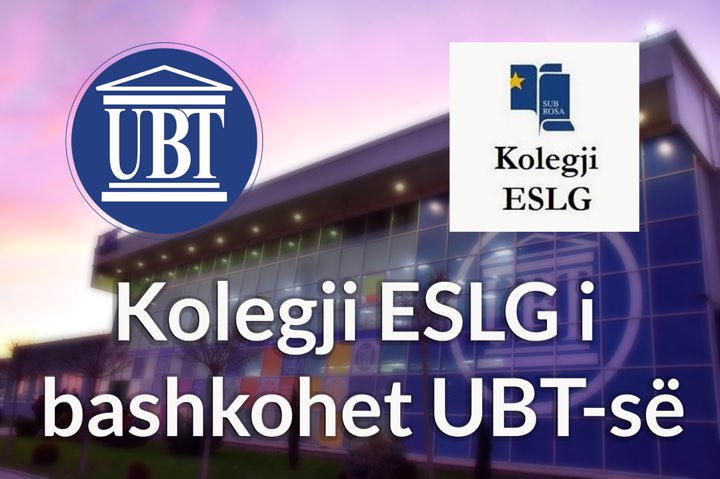Quality management
The ESLG’s approach to quality improvement is based on a continuous responsive process that seeks to improve the outcomes. The College ESLG identifies its stakeholders (students, staff, internal and external stakeholders), the key processes involved in the implementation of programs and services to students. Not only subject and program self-evaluation take place but also the departmental processes self-evaluation takes place as part of the continuous process of departmental and college planning. The next step involves the evaluation of the performance against stated policies and objectives and identification of gaps and deficiencies. The final step involves a report and recommendations for Improvement Plan for activities and policies that could be taken to address the identified challenges.
The quality assurance processes at College ESLG, department and program level deal with all the aspects of program planning and delivery, hence they are designed to enhance service and programme delivery, which include review of quality procedures, governance, teaching and research at the program/department, student admission, progression and graduation, staff selection, recruitment and development, student support services, physical infrastructure and equipment, and public awareness about the mission of the study program.
The College ESLG has procedures for design, review and approval of new and existing programmes as provided for by Regulation and procedure of development/review and approval of new and existing curricula. Student representatives, academic staff, and industry representatives are involved in the processes of design, review, and approval of new and existing curricula.
The quality assurance processes at College ESLG and program level are designed to be implemented during the whole life cycle of the program to ensure quality, superiority, and consistency in the delivery of the study program. The quality assurance processes take into account the following key steps: (1) stakeholder engagement, (2) Department and Program Strategic and Implementation Plan, (3) Department and Study Program Management, (4) Teaching, Learning and Research, and (5) Department and Program Human Resources Management and Staff Development, and (6) Public Information. The results of quality assurance research outlined in the Annual Quality Assurance Report are translated into a Quality Improvement Plan for the subsequent year in the Department/Program Annual Development Plan.
The College undertakes the periodic evaluation of the program every year. The evaluation process reviews the programme learning outcomes, programme teaching and learning methodology, assessment, research, and its courses. The evaluation process also reviews the programme learning outcomes and measure their impact on graduates’ success and impact on the industry and community.
The periodic evaluation not only takes place as part of the accreditation process but also it ensures that the study program is adapted to student needs and labour market needs. The periodic evaluation reviews the study program learning outcomes, program teaching and learning methodology, assessment and examination methods, research, and course syllabi in particular. The periodic evaluation also measures the impact of the study program on graduates success and progress and impact on industry and community. The periodic evaluation process takes place in three phases: study program self-evaluation, development of program strategy and drafting of revised strategic document. The process includes the self-assessment of the program, development of program strategic plan, and is composed of: programme self-evaluation, programme strategy and proposed revisions document. The Department Head, academic staff members, student representatives, alumni representative, and industry representatives take part in the self-assessment of the program learning outcomes, academic success, employment of graduates, and impact on industry.
College ESLG also performs student hearings with the wider purposive sample of students and not only with those that face problems and challenges during the studies. Also, the student hearings with the wider sample of students and not only with student representatives are performed for the purpose of self-evaluation of programs and institution every three to five years. The self-evaluation process takes place in accordance with the Regulation on Internal Self- Evaluation and External Self-Evaluation of College ESLG
The quality assurance system and processes are guided by the Quality Assurance Manual of College ESLG.
The College ESLG is the only institution that publishes the Self-Evaluation Report based on the standards of Internal Quality Assurance Manual.
College ESLG is the only institution that has internalized the quality and nurtures a strong quality culture autonomously regardless of the external evaluations, which take place every three to five years by Kosovo Accreditation Agency. In this regards it is the only institution that performs Self-Evaluation based on the internal quality manual standards of the College and makes everything transparent.
College ESLG has developed an independent system of its own of quality assurance and has implemented it. In addition to annual quality reviews, it performs student qualitative hearings with the wider purposive sample and conducts the Self-Evaluation Report based on its own internal quality standards as foreseen by its own Quality Assurance Manual.
It is the only institution with the local quality culture. College ESLG does not only comply with its internal quality standards but believes in them and in the underlying ideas that support these standards.
ESLG has a strong audit culture and is a strong audit community and is never academically complacent with what it has achieved with its unique study programs.
ESLG is never academically complacent and never self-praising about its activities and in External Self Evaluation Report and Internal Self-Evaluation Report it can be seen how it reflects critically also weaknesses and not only strengths as most institutions do. Acknowledging weaknesses and being self-critical both in SWOT analysis and also in Learning Outcomes Self-Assessments makes ESLG have a competitive advantage on quality management.
As part of quality culture, staff of College ESLG continuously seeks to improve the scientific work and teaching, in line with the needs of employers and students, which is done through individual self-appraisals and individual development plans of academic staff.



